
The metaverse will allow you to "extend your body into architecture" says Fredrik Hellberg of Space Popular
The virtual world and the real world will become one and the human body will merge with fashion and architecture, according to speakers at Dezeen Club's metaverse meet-up event held at a virtual rooftop bar earlier this week.
"The virtual world and the real world will integrate," said Amber Slooten of virtual fashion studio The Fabricant.
"There will be like a virtual layer on top of reality that you'll be able to switch on and off," she added. "And there will be virtual worlds that you can go into."
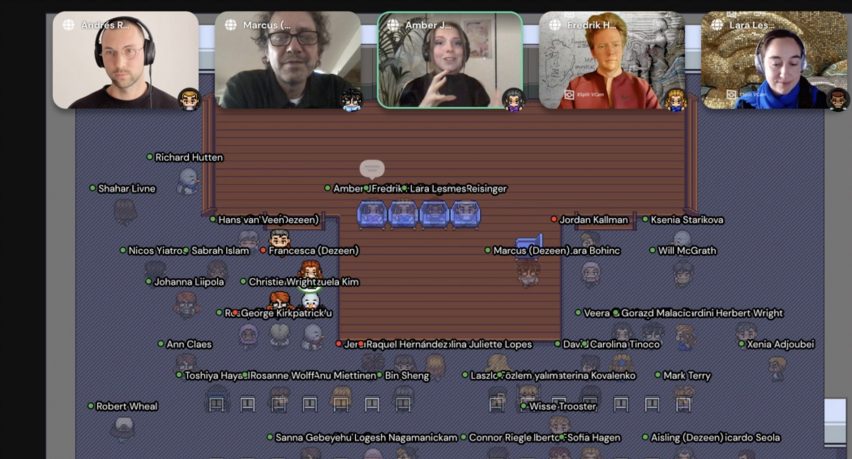
"It's already beginning to happen where architecture, fashion and the body sort of becomes one,"said Fredrik Hellberg of architecture studio Space Popular.
He added that virtual worlds will allow people to "control or actually extend your body into architecture".
Slooten and Hellberg were among speakers at Dezeen Club's metaverse meet-up on Wednesday, which also included Charlotte Taylor and Andrés Reisinger.

Held at a virtual rooftop bar created in spatial video-chat platform Gather.Town, the event was attended by over 200 invited guests who moved around the venue with digital avatars and took part in video chats with other attendees.
A panel discussion at the event saw leading figures from digital design discussing the metaverse – a term used to describe the emerging digital universe where people can experience a parallel life to their real-world existence.
Metaverse will let users choose identities
The metaverse will allow people to adopt new identities, personalities and even bodies, speakers said.
"The way we look at clothes now, the way we look at identity in general, is still very much tied to physical reality," said Slooten.
"But what if suddenly I would be able to wear a dress that would extend as far as someone walking around me, and then suddenly my dress would connect to their dress, and there would be some kind of social interaction?"
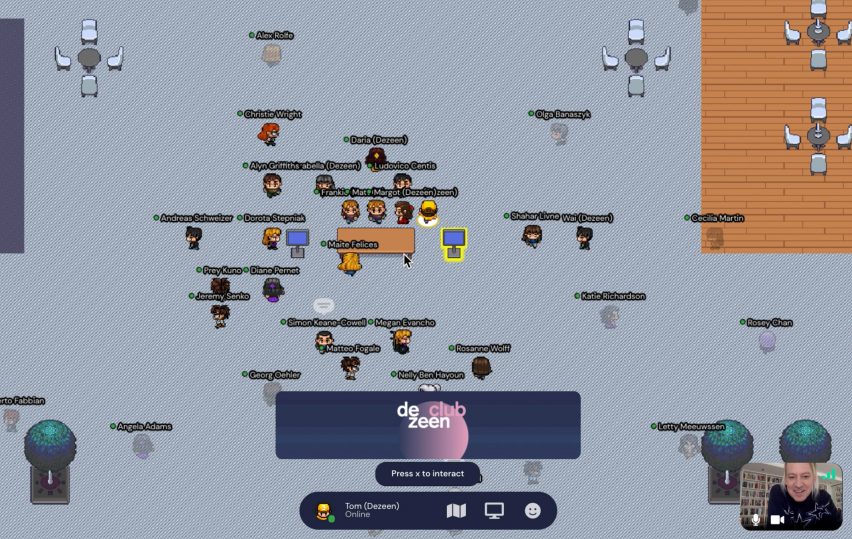
In the metaverse, your avatar can take any form, added Hellberg, allowing you to experience what it's like to have a completely different body.
"In virtual reality, if you have a tail, for instance, it takes only a few minutes before your body gets used to having a tail," he said.
"This means that you'll very, very soon get ready for having another arm and then all sorts of other body-related things."
"That's one of our biggest predictions of what's going to happen in the next 20 years or so," he added.
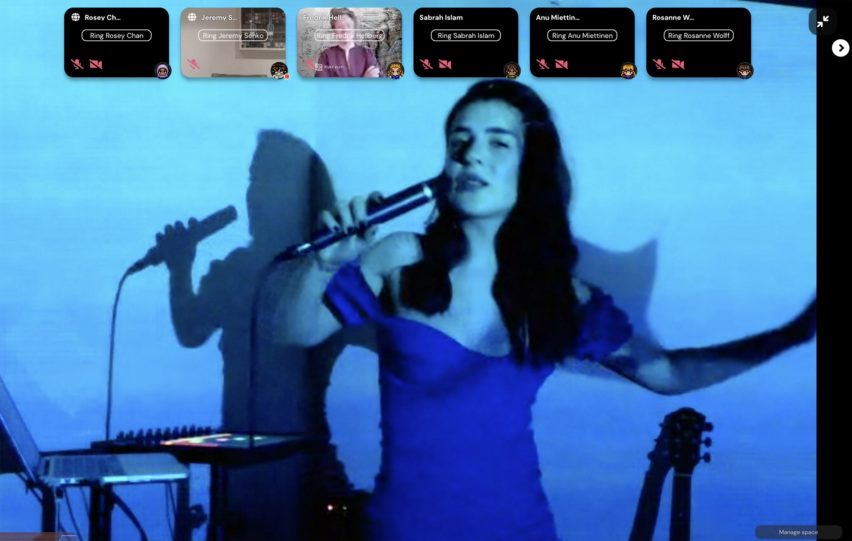
Hellberg explained the concept of homuncular flexibility, which describes the psychological and physiological effects of inhabiting an avatar body in virtual reality.
"I think it's really exciting, this concept of homuncular flexibility [and] the fact that the human mind is very good at adopting new ways of inhabiting different bodies," he said.
New business models
The metaverse is also providing designers with a new business model as they explore ways to sell virtual furniture, clothes and even entire buildings.
In 2019, The Fabricant sold the first-ever virtual dress for $9,500 at an NFT auction.
"This caused an outrage everywhere because people really didn't get it," said Slooten, describing the reaction at the time.

Today, the concept of virtual products is more accepted thanks to a series of high-profile NFT auctions such as the sale of Krista Kim's virtual dwelling Mars House and a series of architectural renderings by Alexis Christodoulou.
Andrés Reisinger, a designer who was among the first to sell digital furniture, said that virtual objects can be more valuable than their real-world counterparts.
"Digital has quite a few qualities that are verifiable such as scarcity and traceability," he said, adding that the digital version of his Hortensia chair is worth more than the physical version.

"It's very easy to trace [digital] assets and know where they are, how many of them there are and who has them. And also they don't age," he added.
"I think that the use of materials that cannot exist in real life is also something that can make it more valuable," added Slooten.
Dezeen Club's metaverse meet-up also featured live musical performances plus networking opportunities in a virtual lounge and bar.
Here, attendees could gather around virtual tables or on virtual sofas to chat, with many guests staying long after the event ended to continue conversations.
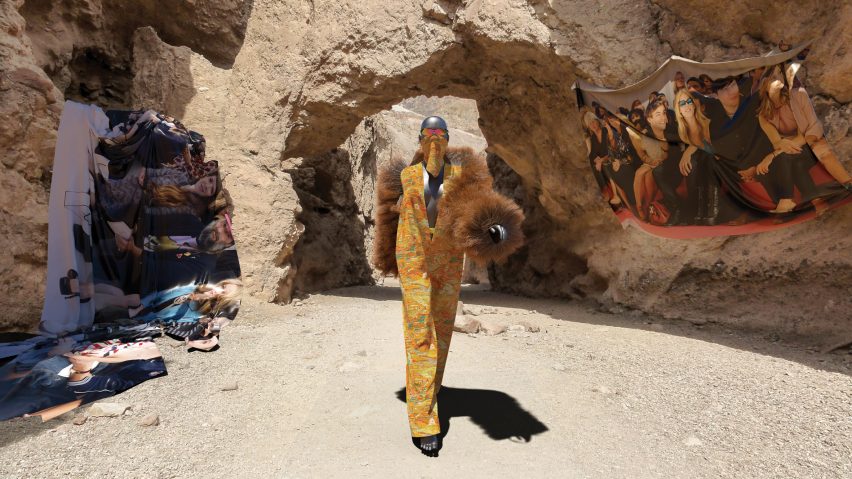
"It's the first time I was in a virtual event where the virtual part didn't feel like a plan B," said reSITE creative captain Radka Ondrackova, who attended the event.
"I was experiencing a very thrilling state of mind around the dichotomy of being present or absent in either of those environments with my not-so-comfy chair reminding me constantly about the physical one."
Designer Soo Wilkinson, another attendee, said that despite technical hitches that caused the sound to drop out "it was still good to look at the pictures and really funny seeing all the avatars sat listening intently on virtual chairs!"
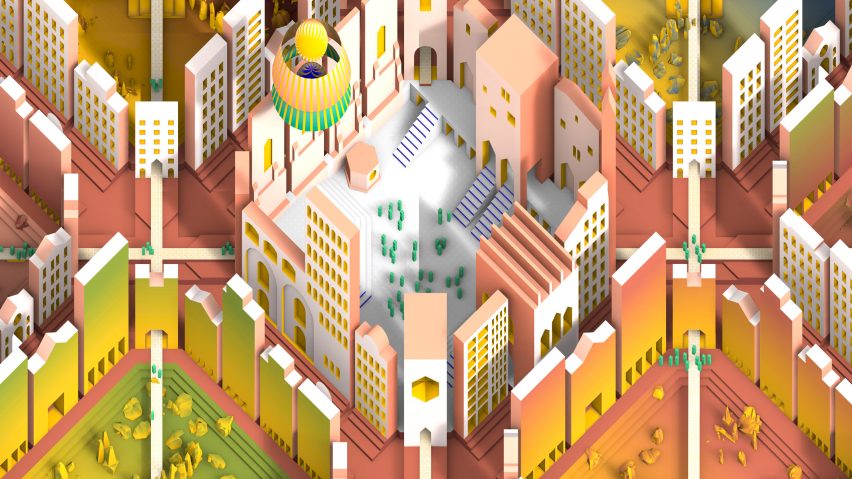
At the panel discussion, Lara Lesmes of Space Popular argued that virtual spaces called for a new kind of architectural language that speaks to people rather than architects.
"Virtual environments are bringing to the forefront of architectural design really critical thinking about what architecture is doing semiotically," she said. "What is it doing as a true language, not the architectural language that only architects speak?"
Noting how attendees at the event made use of digital tables and chairs even though they didn't need to, she said: "There is a necessity for codes and a necessity for atmosphere. This is architecture as the spoken word."
"What [virtual architecture and furniture] are doing is not just allowing us to sit or protecting us from the weather, but they are also saying a lot."
"Routines that we have built in the physical world will be our library to build the virtual," she added. "And eventually, we might start developing new ones."
Dezeen Club is a response to the fact that people are missing the social contact and chance encounters of real-world events as a result of the pandemic.
The club, which will initially be invitation-only, will give members access to enhanced functionality on Dezeen's websites as well as access to VIP events in both cyberspace and the real world. For more details, email [email protected].